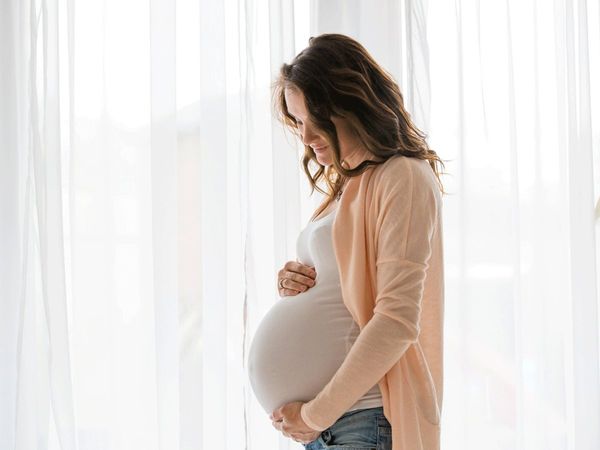How Depression Affects During Pregnancy?
Depression is a disorder that affects the ability to think, understand and act. Research has shown that women are twice as likely to suffer from depression as men. Worldwide, about 6% of women suffer from depression at any age, compared to 10% of pregnant women.
In this regard, medical experts say that depression is becoming a common disease in pregnant women, the main reason for which they are constantly suffering from mental stress due to various reasons during pregnancy. Depression can persist during pregnancy and maternity for one to two weeks.
Read also: Health benefits of Ear piercing
According to a professor and psychologist at the University of York (England), many physical and mental changes occur in women during pregnancy. Changes in hormones during pregnancy affect chemicals in the brain. This condition causes depression and anxiety for both the mother and the baby, causing women to feel constant pressure on their physical and physical constitution even after the baby is born.
Types of depression in pregnant women
Medical experts divide pregnant women into different types of depression, some of which are listed below.
* Antenatal depression occurs during pregnancy.
* Postpartum depression can occur a few days or months after the baby is born.
* Postpartum psychosis is called severe depression, there is no specific time for it, but according to experts, this depression can occur four to six weeks after the birth of the child.
In this topic we will talk about the type of depression during pregnancy because in most cases women do not even realize that they are suffering from depression during pregnancy, so the same conditions continue (after birth) Baby Blue and postpartum. Turn into depression.
READ ALSO: Plant-Based Keto Protein -All-in-one Dietary Supplement!!!
It is also important to know that not only mothers but also about 10% of fathers suffer from postpartum depression after the birth of a child. The good news is that depression can be treated during pregnancy.
Symptoms of depression in pregnant women
Antenatal depression gradually affects the patient. The symptoms of depression in women during pregnancy are very different from other types of depression. In pregnant women, these symptoms can be of different types, such as mild in some and severe in others.
* Changes in appetite, for example, feeling very hungry or not wanting to eat at all.
* Sleep changes, too much sleep or no sleep at all.
* Lack of energy, despair, sadness or not being interested in any work and crying for no reason.
* Lack of interest in pleasures and other activities (whereas under normal circumstances your reaction is different).
How does depression affect pregnant women?
According to medical experts, mothers who suffer from depression during pregnancy also face difficulties in caring for their baby after birth. Not only this, with the onset of depression during pregnancy you can experience serious side effects such as miscarriage, premature birth or weight loss, etc. If women do not seek treatment for depression during pregnancy, it can turn into postpartum depression after childbirth.
If you are not aware of postpartum depression, know that this type of depression is a complex combination of physical, physiological and behavioral changes that can appear in the early stages after childbirth. Psychologists recognize this type of depression as one of the most common mental illnesses. Symptoms of this type of depression appear in mothers at least four weeks after the birth of the baby, which can also affect the health and relationship of mother and baby.
Effects of depression on the baby
If depression is not treated during pregnancy, it can affect the baby. Women with depression during pregnancy have difficulty caring for their baby after birth and also have difficulty feeding the baby.
Negative perceptions of a child’s reaction to any action, failure of a deep emotional relationship with the child, irritability to the sound of the baby crying, restlessness and irritability can cause problems in the child’s mental and physical development.
Treatment of depression during pregnancy
If a pregnant woman is experiencing any of the above symptoms during pregnancy, it is very important for her to seek help from others. The first step in this regard is to contact a medical doctor, ie talk to your midwife, health visitor or gynecologist. Participate in your treatment decisions.
Talk to your husband, family and circle of friends about this, and make them aware of these symptoms, because only with the help of these people can the treatment of depression be made possible. It should be noted that the methods commonly used by medical practitioners to get pregnant women out of depression include support group counseling, private counseling, psychotherapy, anti-depressant medication and light therapy.







